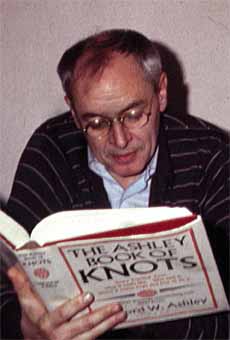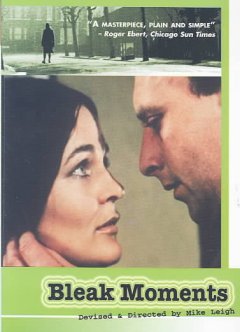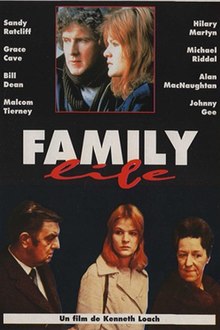
Ronald David Laing, usually cited as R. D. Laing, was a Scottish psychiatrist who wrote extensively on mental illness—in particular, psychosis and schizophrenia. Laing's views on the causes and treatment of psychopathological phenomena were influenced by his study of existential philosophy and ran counter to the chemical and electroshock methods that had become psychiatric orthodoxy. Laing took the expressed feelings of the individual patient or client as valid descriptions of personal experience rather than simply as symptoms of mental illness. Though associated in the public mind with the anti-psychiatry movement, he rejected the label. Laing regarded schizophrenia as the normal psychological adjustment to a dysfunctional social context, although later in life he revised his views.

Prick Up Your Ears is a 1987 British film, directed by Stephen Frears, about the playwright Joe Orton and his lover Kenneth Halliwell. The screenplay was written by Alan Bennett, based on the 1978 biography by John Lahr. The film stars Gary Oldman as Orton, Alfred Molina as Halliwell, Wallace Shawn as Lahr, and Vanessa Redgrave as Peggy Ramsay.

The Wednesday Play is an anthology series of British television plays which ran on BBC1 for six seasons from October 1964 to May 1970. The plays were usually original works written for television, although dramatic adaptations of fiction also featured. The series gained a reputation for presenting contemporary social dramas, and for bringing issues to the attention of a mass audience that would not otherwise have been discussed on screen.

"Cathy Come Home" is a 1966 BBC television play about homelessness. It was written by Jeremy Sandford, produced by Tony Garnett and directed by Ken Loach. A 1998 Radio Times readers' poll voted it the "best single television drama" and a 2000 industry poll rated it as the second-best British television programme ever made. Filmed in a gritty, realistic drama documentary style, it was first broadcast on 16 November 1966 on BBC1. The play was shown in the BBC's The Wednesday Play anthology strand, which often tackled social issues.

Kes is a 1969 British film directed by Ken Loach and produced by Tony Garnett, based on the 1968 novel A Kestrel for a Knave, written by the Hoyland Nether–born author Barry Hines. Kes follows the story of Billy, who comes from a dysfunctional working-class family and is a no-hoper at school, but discovers his own private means of fulfilment when he adopts a fledgling kestrel and proceeds to train it in the art of falconry.
Anthony Samuel Selby was an English actor. He was best known for his roles as Clive Mitchell in EastEnders, Corporal Percy Marsh in Get Some In!, and Sabalom Glitz in Doctor Who.
Trevor Griffiths is an English dramatist.

David Mercer was an English dramatist.
Tony Garnett was a British film and television producer, and actor. Best known for his thirteen-year association with director Ken Loach, his work as a producer continued into the 21st century.

Bill Dean was a British actor who was born in Everton, Liverpool, Lancashire. He took his stage name in honour of Everton football legend William 'Dixie' Dean.
James Allen was an English socialist playwright, best known for his collaborations with Ken Loach.
James MacTaggart was a Scottish television producer, director and writer. He worked in London from 1961.

Bleak Moments is a 1971 British comedy-drama film by Mike Leigh in his directorial debut. Leigh's screenplay is based on a 1970 stage play at the Open Space Theatre, about the dysfunctional life of a young secretary.

"The Spongers" is the 14th episode of eighth season of the British BBC anthology TV series Play for Today. The episode was a television play that was originally broadcast on 24 January 1978. "The Spongers" was written by Jim Allen, directed by Roland Joffé, produced by Tony Garnett, and starred Christine Hargreaves, Bernard Hill, Peter Kerrigan, and Paula McDonagh.

"The Big Flame" is a 1969 BBC television play by socialist playwright Jim Allen, produced by Tony Garnett and directed by Ken Loach. The play tells the story of 10,000 dockworkers occupying the Liverpool docks in a "work-in". Filmed in a gritty, realistic drama documentary style, it was first broadcast on 19 February 1969 on BBC1, at a time when unemployment was rising in Britain. The play was shown in the BBC's The Wednesday Play anthology strand, which was noted for tackling social issues.

"Up the Junction" is an episode of the BBC anthology drama series The Wednesday Play directed by Ken Loach and produced by James MacTaggart. It was first broadcast on 3 November 1965 on BBC 1. The play was adapted by Nell Dunn and (uncredited) Ken Loach from Dunn's short story collection of the same name. It tells the stories of three young women living in North Battersea and Clapham and, to a lesser degree, their boyfriends.

"In Two Minds" is a television play by David Mercer commissioned for The Wednesday Play anthology drama series. First transmitted on 1 March 1967, it was directed by Ken Loach and produced by Tony Garnett and features Anna Cropper in the lead role.

Kenneth Charles Loach is a British film director and screenwriter. His socially critical directing style and socialism are evident in his film treatment of social issues such as poverty, homelessness, and labour rights.
"The End of Arthur's Marriage" is a television satirical musical drama that was an episode in The Wednesday Play series first broadcast on 17 November 1965. It was an early work of director Ken Loach, and the script was written by poet Christopher Logue. It is unusual in Loach's catalogue for the surrealism, and the director later said that he believed himself to have been "the wrong man for the job". Main actor Ken Jones had previously worked with Loach on Wear a Very Big Hat and 3 Clear Sundays and later featured in the controversial 1969 play The Big Flame.
Sally Hibbin is a British independent film producer, known for her work on low budget films with directors like Ken Loach and Phil Davis as well as producers like Sarah Curtis and Rebecca O'Brien. She has produced various British independent films and some television productions.












